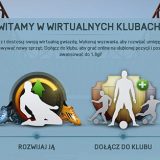The Role of Character and Integrity in Building Wealth History
Building upon the foundational idea that Why Value and Honor Shaped Wealth Through History, it becomes evident that the virtues of character and integrity have been central to the ethical fabric underpinning wealth creation across ages. While values like honor set societal standards, personal character and unwavering integrity have distinguished enduring wealth from fleeting fortune. This article explores how these virtues have historically influenced economic success and how they continue to shape modern perceptions of trust and reputation.
1. Introduction: From Honor to Character—Tracing the Evolution of Wealth Formation
a. The shift from societal honor to individual character in economic success
Historically, societal honor was the primary metric of reputation, often linked to familial lineage, social class, or adherence to traditional values. As economies evolved from purely agrarian to complex trade systems, the focus gradually shifted from collective honor to individual attributes—particularly character and moral integrity. This transition marked a significant development: wealth was no longer solely inherited or bestowed by social standing but increasingly earned through personal virtues. For example, during the Renaissance, merchant families like the Medicis gained prominence not only through commerce but through their reputation for honesty and ethical conduct, which fostered trust essential for long-term economic partnerships.
b. Why personal integrity became a cornerstone in wealth-building narratives
Personal integrity emerged as a vital element because trust is the currency of economic exchange. Historically, stories of traders and entrepreneurs who maintained honesty—despite the temptation for quick gains—tended to inspire confidence and sustainable business growth. The rise of banking in medieval Italy, exemplified by families like the Bardi and Peruzzi, demonstrated that integrity in financial dealings was pivotal to their ability to mobilize capital and expand wealth. These narratives underscore that integrity fosters a reputation that attracts business, investments, and partnerships, laying a foundation for lasting prosperity.
c. Connecting historical values to contemporary perceptions of trust and reputation
Today, the principles that once underpinned honor and integrity are embedded in modern financial systems. Trustworthiness influences investor confidence, corporate branding, and even market stability. The shift from honor as a collective societal value to individual character as a determinant of economic success reflects a broader cultural transformation—one that emphasizes accountability, transparency, and moral consistency. These qualities are now essential benchmarks for assessing enduring value and reputation in global markets.
2. Historical Examples of Character-Driven Wealth Accumulation
a. The influence of ethical leadership in ancient trade and commerce
In ancient civilizations, leaders who prioritized ethical conduct often established prosperous trade networks. The Phoenicians, renowned for their maritime trade, emphasized honesty and reliability, which fostered trust across Mediterranean markets. Their reputation for integrity enabled them to dominate trade routes for centuries, illustrating how character directly contributed to economic dominance.
b. Case studies: Merchants, rulers, and entrepreneurs whose integrity shaped their fortunes
- Francisco Pizarro: Despite controversies, Pizarro’s reputation for strategic honesty in negotiations with indigenous populations played a role in his success in conquest and colonization.
- John D. Rockefeller: Known for logistical precision and a reputation for fair dealing, Rockefeller’s integrity helped establish Standard Oil as a dominant and respected enterprise, despite early monopolistic practices.
- Abraham Lincoln: His reputation for unwavering honesty and moral integrity not only defined his leadership during turbulent times but also built trust that underpinned economic stability during reconstruction.
c. Lessons from history: When character triumphed over mere accumulation of resources
Historical narratives show that wealth built on ethical foundations tends to be more sustainable. The success stories of honest traders and principled leaders provide enduring lessons—character, honesty, and moral consistency often outweigh cunning or greed in creating lasting influence and economic security. These stories reinforce that wealth rooted in integrity maintains societal trust, which is crucial for long-term prosperity.
3. The Psychological and Social Foundations of Integrity in Wealth Building
a. How trust and reputation serve as social currencies in economic exchanges
In economic interactions, trust acts as a vital social currency—reducing transaction costs, fostering cooperation, and enabling complex networks. A solid reputation for honesty and fairness encourages others to engage in transactions without fear of exploitation. Studies in behavioral economics reveal that trustworthiness significantly enhances the likelihood of successful partnerships, investments, and customer loyalty, thereby directly impacting wealth accumulation.
b. The role of consistency, honesty, and moral principles in sustaining wealth
Consistency in ethical behavior builds a reliable reputation over time. Entrepreneurs who uphold honesty, even in challenging circumstances, tend to attract repeat business and loyal investors. For instance, companies like Patagonia have built brands around environmental and social responsibility, proving that moral principles can be a competitive advantage. This sustainability in reputation ensures long-term wealth rather than short-lived gains founded on deception or opportunism.
c. Impact of societal norms on individual character development and economic outcomes
Societies that embed norms of honesty, fairness, and responsibility cultivate individuals with strong moral character. Educational systems, legal frameworks, and cultural stories reinforce these virtues, which translate into trustworthy economic actors. Research indicates that in cultures where integrity is highly valued, economic transactions are more efficient, corruption is minimized, and wealth distribution tends to be more equitable—further demonstrating the connection between societal norms, character, and wealth.
4. Challenges to Character in Wealth Creation: Corruption, Greed, and Deception
a. Historical instances where compromised integrity led to downfall or loss of wealth
Many economic collapses serve as cautionary tales—such as the fall of Enron, where deception and fraud destroyed shareholder value and corporate reputation. Similarly, the South Sea Bubble burst in the 18th century, driven by speculative greed and lack of transparency, leading to widespread financial ruin. These examples highlight that undermining integrity often results in loss of trust and wealth, sometimes irreparably.
b. The thin line between strategic risk-taking and unethical behavior
Strategic risk is essential in entrepreneurship; however, crossing into deception or manipulation damages reputation and long-term prospects. For instance, aggressive accounting practices that obscure true financial health may boost short-term earnings but can lead to regulatory penalties and loss of stakeholder trust. Recognizing this boundary is key to maintaining integrity while pursuing innovative growth.
c. How societies have responded to breaches of character in economic contexts
Legal and cultural responses include increased regulation, enforcement of transparency, and societal shaming of unethical behavior. The Sarbanes-Oxley Act of 2002 exemplifies efforts to curb corporate misconduct. Societal norms continue to evolve, emphasizing that sustained economic health depends on holding individuals and institutions accountable for breaches of integrity.
5. Modern Perspectives: Character and Integrity as Competitive Advantages
a. The rise of ethical branding and corporate social responsibility
Today, consumers and investors increasingly favor companies demonstrating authentic commitment to ethical practices. Brands like Ben & Jerry’s and Patagonia emphasize social responsibility, which builds consumer loyalty and attracts ethical investment. Such integrity-driven positioning translates into competitive advantage and sustainable growth.
b. Personal integrity as a factor in investor confidence and business partnerships
Trustworthiness influences investor decisions—research shows that companies with transparent governance and ethical leadership attract more stable, long-term investments. Entrepreneurs who demonstrate integrity are more likely to forge resilient partnerships, secure favorable terms, and navigate crises effectively, reinforcing the importance of character in economic success.
c. The long-term benefits of cultivating character in entrepreneurial success
Cultivating integrity and moral consistency fosters a reputation of reliability, which attracts loyal customers, dedicated employees, and supportive investors. Over time, this virtuous cycle enhances brand equity and creates a sustainable platform for wealth accumulation. Modern research confirms that ethical leadership correlates strongly with financial performance and organizational resilience.
6. The Interplay Between Value, Honor, and Character in Shaping Wealth Norms Today
a. How contemporary culture reinterprets historical virtues in wealth creation
Modern culture elevates virtues like authenticity, responsibility, and moral courage—values rooted in historical notions of honor and integrity. Movements advocating for corporate accountability and social impact reflect a deeper societal shift towards valuing character as integral to economic success. These redefinitions align with the idea that sustainable wealth is built on trust and moral credibility.
b. The importance of fostering character in emerging financial systems and markets
As decentralized finance (DeFi), cryptocurrencies, and fintech evolve, the importance of transparency and ethical standards becomes even more critical. Building robust institutions that prioritize integrity will determine whether these innovations serve societal needs or foster new forms of deception. Embedding character into these systems ensures their resilience and societal acceptance.
c. Case examples of modern leaders exemplifying integrity and their impact on wealth perception
- Paul Polman: Former CEO of Unilever, championed sustainability and ethical business practices, enhancing brand value and stakeholder trust.
- Indra Nooyi: Led PepsiCo with focus on responsible marketing and social responsibility, reinforcing long-term value over short-term gains.
- Elon Musk: While controversial at times, his emphasis on innovation and transparency in certain ventures bolsters investor confidence and public trust.
7. Bridging Back: Reinforcing Why Value, Honor, and Character Are Essential in Wealth’s Historical Narrative
a. Summarizing how character and integrity underpin the ethical foundations of wealth
As explored, the threads of character and integrity are woven deeply into the fabric of wealth history. From ancient traders to modern entrepreneurs, these virtues serve as moral anchors—ensuring that wealth is not only accumulated but also preserved and respected within society. They act as safeguards against corruption and deception, fostering environments where trust flourishes.
b. The ongoing relevance of these virtues in maintaining societal trust and economic stability
In an era marked by rapid technological change and global interconnectedness, the importance of character remains paramount. Societies that uphold integrity and moral standards tend to experience more stable economic growth, lower corruption levels, and higher social cohesion. These virtues underpin the social capital necessary for sustainable development and wealth preservation.
c. Final reflections on integrating value, honor, and character to build sustainable wealth history
Ultimately, the evolution from collective honor to individual character underscores a vital lesson: sustainable wealth is rooted in virtues that transcend transient gains. Emphasizing integrity, moral responsibility, and value-driven conduct ensures that wealth contributes positively to societal progress and leaves a legacy that endures through generations.

















1 Odpowiedź
[…] Test all variants across multiple browsers (Chrome, Firefox, Safari, Edge) and devices (mobile, tablet, desktop). Use tools like BrowserStack or Sauce Labs for comprehensive cross-platform testing. Incorporate feature detection scripts (e.g., Modernizr) to adapt changes based on browser capabilities. Use CSS resets and flexible layouts to prevent layout shifts that can invalidate your test results. Document device-specific anomalies and adjust your implementation accordingly. […]